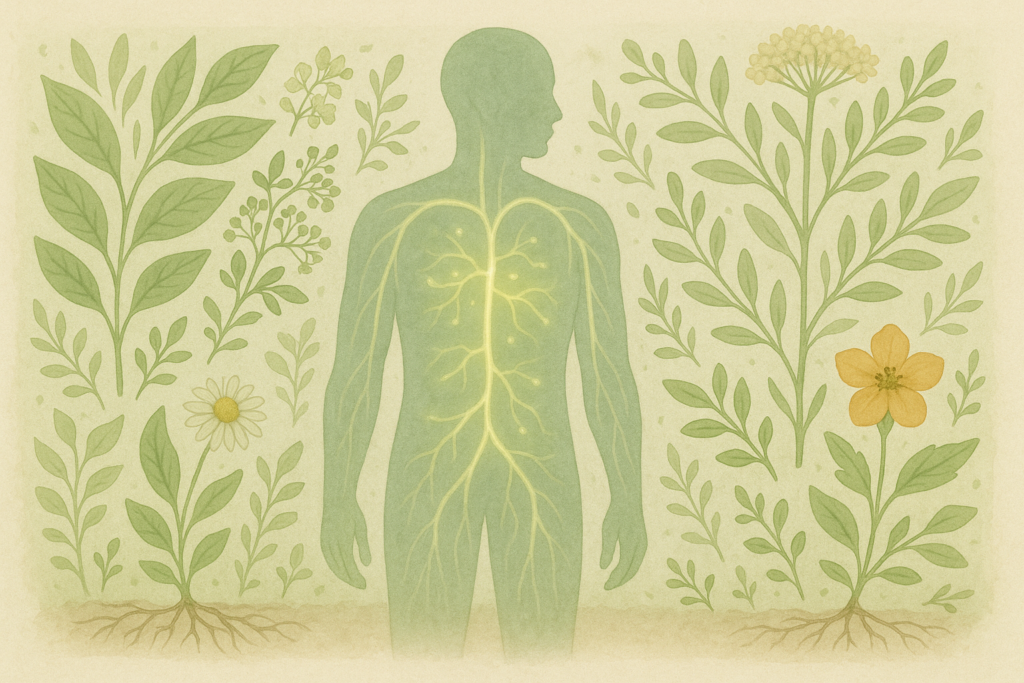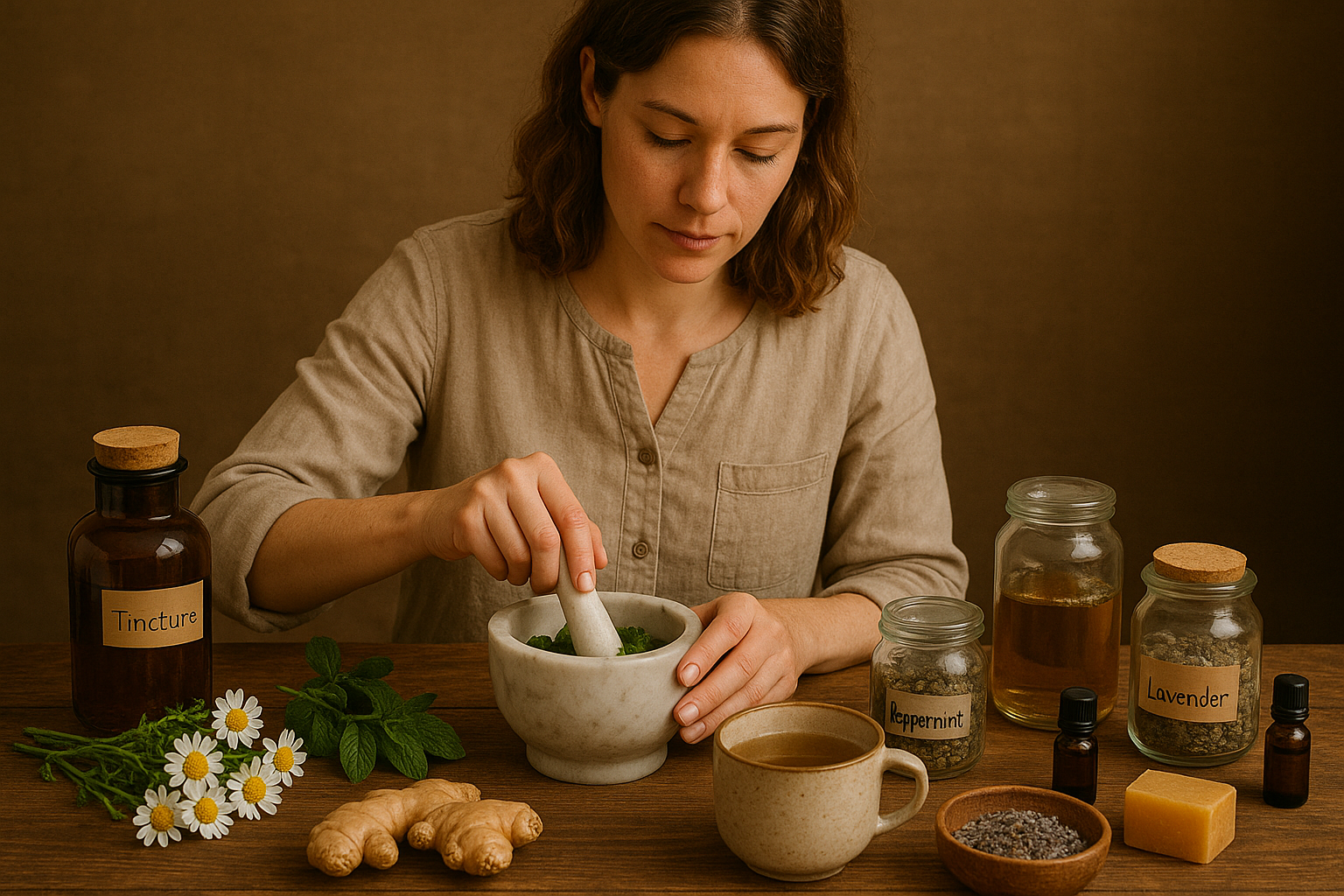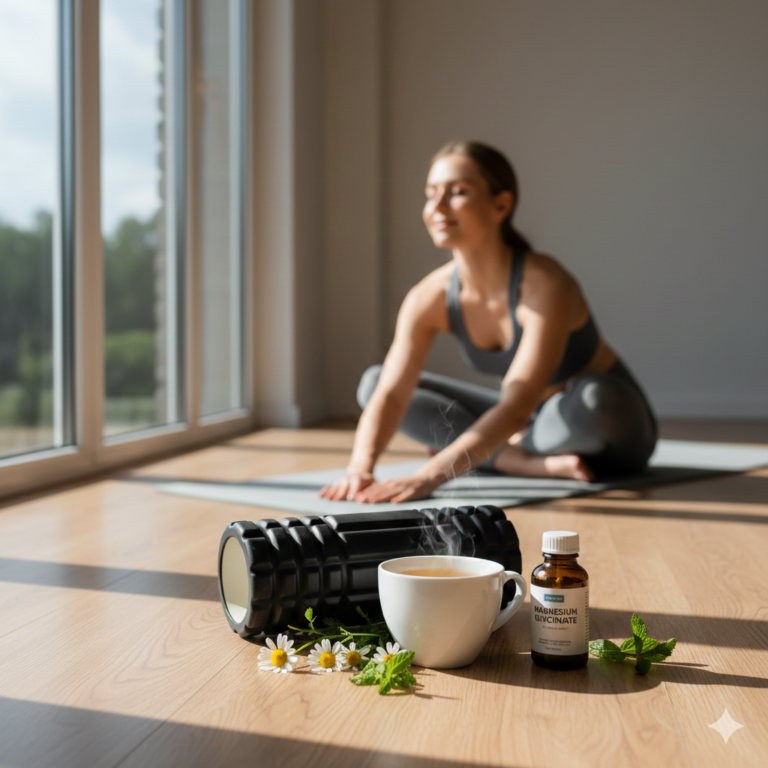The Ultimate Guide to How Herbal Medicine Works and How You Can Easily Make It at Home
Herbal medicine, also known as herbalism, phytotherapy, or phytomedicine, is an ancient healing system that uses plants, herbs, and natural ingredients to support and improve health. Whether its a cup of calming teas to immunity-boosting syrups, herbal remedies are found in cultures around the world. Today, as more people seek natural remedies and home-based treatments, herbal medicine is making a stronger.

The healing power of nature in a way that’s easy to understand and practical to use its easy to find.
Table of Contents
What Is Herbal Medicine?
Its a natural thing Herbal medicine is the practice of using parts of plants—leaves, roots, stems, seeds, flowers, and bark—for health purposes.
Many traditional systems of medicine, and Ayurveda, are built on herbal practices that are thousands of years old make it very effective medicine.
Herbs are used in many forms: teas, powders, tinctures, oils, capsules, and topical applications like creams or salves many more.
🌿 Traditional Systems of India in Herbal Medicine
In India herbal and natural ingredient hub, and India has one of the most richest and oldest traditions of herbal healing in the world. Its classical systems, Ayurveda and Siddha, have been using herbs for thousands of years to promote holistic wellness and treat diseases naturally.
🧘♀️ Ayurveda: The Science of Life
Ayurveda, meaning “the science of life,” is a 5,000-year-old medical system that relies heavily on herbs to balance the body’s vata dosha, Pitta, and Kapha. Ayurvedic remedies use plant parts like roots, leaves, bark, seeds, and resins or many more.
- Strengthen immunity
- Improve digestion
- Support mental clarity
- Detoxify the body
Popular Ayurvedic Herbs:
- Ashwagandha – for stress and energy
- Tulsi (Holy Basil) – for immunity and respiratory health
- Triphala – for digestion and detox
- Neem – for skin and blood purification
🌿 Siddha Medicine: Southern Wisdom
Siddha is one of the oldest traditional medical systems, practiced mainly in South India. Like Ayurveda, it uses herbs but also includes minerals and metals. Siddha places strong emphasis on diet, lifestyle, and well-being change your way to heal.
Common Siddha Herbs:
- Amla (Indian Gooseberry) – antioxidant, rejuvenator
- Adathoda (Vasaka) – treats cough and asthma
- Manjal (Turmeric) – anti-inflammatory and antimicrobial
🌱 A Legacy of Natural Healing
Both Ayurveda and Siddha emphasize preventive care, personalized treatment, and long-term wellness—principles that align perfectly with modern natural health movements. Many of these herbs are now globally recognized and integrated into Western herbal practices and todays world can change now people have to move herbal medicine.
How Does Herbal Medicine Work?
Herbal medicine work by interacting with the body’s natural chemistry and improve there health. Plants contain active compounds such as alkaloids, flavonoids, tannins, essential oils, and glycosides that influence the body’s physiological processes its now improve modern pharmaceuticals.
Key Mechanisms of Herbal Action:
- Anti-inflammatory Effects: Herbs like turmeric (curcumin) and ginger reduce inflammation in the body.
- Antioxidant Properties: Many herbs are we take daily bases, such as green tea, rosemary, and thyme, help fight oxidative stress.
- Immune Support: Herbs like echinacea, elderberry, and astragalus are known to boost the immune system safe our health.
- Calming the Nervous System: Herbs such as chamomile, lavender, and valerian root are used for relaxation and sleep better.
- Digestive Aid: Herbs like peppermint, fennel, and licorice root help the digestive tract function smoothly.
🔍 Example: Artemisinin, derived from Artemisia annua, was traditionally used in China for fever and was later developed into a modern anti-malarial drug it also help us.
Benefits of Herbal Medicine
- Natural and Gentle: Herbal remedies are generally less harsh than synthetic drug medicine.
- Fewer Side Effects: When used correctly, most herbs have common and few side effects are natural herbs.
- Cost-Effective: Many herbal medicines can be made affordably at home and you can make it our self.
- Holistic Healing: Herbs support the mind, body, and spirit give a balanced health treatment.
- Customizable: Remedies can be adjusted to what you need individual.
How to Make Herbal Remedies at Home
Remedies or Making herbal medicine at home is easier than you think and easily affordable. Here are four simple ways to prepare herbal remedies at home:
1. Herbal Teas (Infusions)
Best for: Leaves, flowers, and soft stems
Examples: Chamomile tea, peppermint tea
How to make:
- Use 1–2 teaspoons of dried herb or 1 tablespoon of fresh herb per cup.
- Pour hot water over the herb.
- Cover and steep for 10–15 minutes.
- Strain and enjoy it.
🔍 Tip: Steeping time affects strength longer steeping extracts more active compounds.
2. Herbal Decoctions
Best for: Roots, bark, seeds, and hard parts
Examples: Ginger root, cinnamon bark, licorice root
How to make:
- Use 1 tablespoon of dried herb per 2 cups of water.
- Simmer for 20–30 minutes with the lid on.
- Strain and store in the fridge for up to 3 days.
3. Herbal Tinctures
Best for: Long-term use, strong concentrates or use it before.
How to make:
- Chop fresh or dried herbs.
- Fill a glass jar halfway with herbs.
- Cover with alcohol (vodka or brandy).
- Seal and store in a dark place for 4–6 weeks.
- Shake daily, strain after steeping, and store in a dropper bottle.
4. Herbal Oils and Salves
Best for: Skin conditions, pain relief and hair care
How to make:
- Infuse dried herbs in a carrier oil (olive, coconut) for 4 weeks.
- Strain and heat with beeswax to form a salve.
- Pour into tins and let cool.
Popular Herbs and Their Uses
| Herb | Uses |
|---|---|
| Ginger | Nausea, inflammation, digestion |
| Turmeric | Joint pain, inflammation, antioxidant |
| Chamomile | Sleep aid, anxiety, digestive comfort |
| Echinacea | Immune booster, cold and flu prevention |
| Peppermint | Bloating, headache relief, digestion |
| Garlic | Immune support, heart health, antimicrobial |
| Lavender | Stress relief, skin health, sleep improvement |
| Aloe Vera | Burns, skin irritation, gut health (in juice form) |
Is Herbal Medicine Safe?
Now you using herbal medicine, herbs are natural but not all are safe for everyone. Some can interact with medications, and improper dosages can be harmful for your health.
Safety Tips:
- Start with small doses.
- Use reputable sources for herbs.
- Consult a doctor or herbalist if you have a health condition or take medication.
- Avoid during pregnancy unless guided by a professional.
- Label and date your homemade remedies.
Scientific Support and Modern Research
Herbal medicine is increasingly studied in clinical settings. For example:
- Curcumin from turmeric shows promise in reducing chronic inflammation.
- Green tea catechins are linked to cancer prevention and cardiovascular health
Yes its true however, not all herbs are backed by strong scientific evidence. Quality, dosage, and preparation affect results but many cases it effective.
Frequently Asked Questions (FAQs)
Q: Can I grow my own medicinal herbs at home?
Yes! Many herbs like mint, basil, chamomile, and thyme are easy to grow in pots or gardens.
Q: How long do homemade herbal remedies last?
It varies—teas last 1–2 days in the fridge, tinctures last for years if stored in a cool, dark place.
Q: Are herbal remedies safe for children?
Some are, but always consult a pediatrician or trained herbalist before giving herbs to children.
🌿 Final Thought: Reconnect with Nature’s Medicine
Final Thoughts: Embrace Herbal Healing at Home
Nature give us big thing for our health and Herbal medicine is a beautiful blend of tradition, science, and self-care. Whether you’re sipping peppermint tea for digestion or making your own calendula salve, the power of plants is truly transformative.

Herbal medicine offers a powerful, time-tested way to support your health naturally. By learning how it works and how to prepare simple remedies at home, you’re not just treating symptoms—you’re reconnecting with the earth’s ancient healing wisdom.
Whether you’re steeping a calming chamomile tea or crafting your first herbal salve, each step brings you closer to a healthier, more self-reliant lifestyle. The beauty of herbal medicine is its simplicity, accessibility, and ability to harmonize with your body’s natural rhythms.
🌱 Start small, stay consistent, and trust in the gentle power of plants. Your journey to natural wellness begins one leaf at a time.







